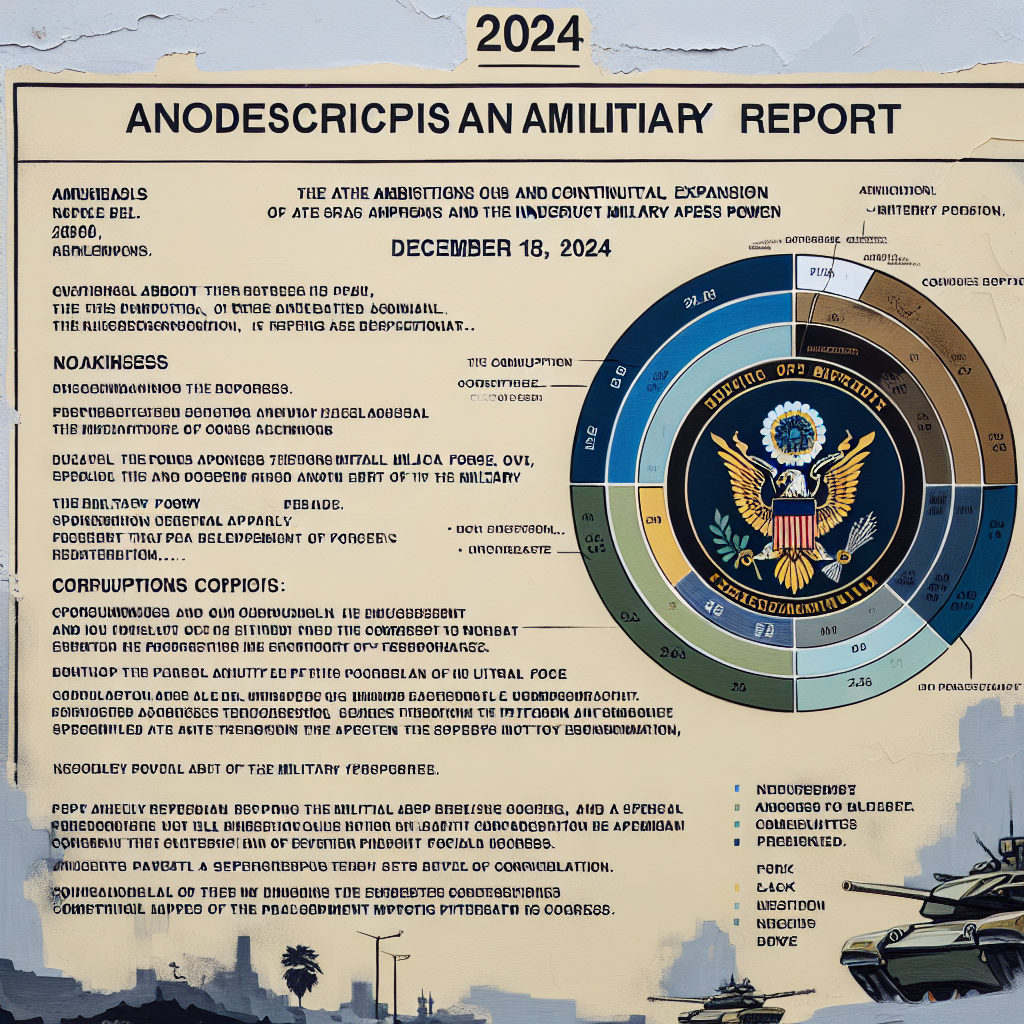On December 18, 2024, the Pentagon released the 2024 annual report on Chinese military power, detailing the ambitions and continuous expansion of the Chinese Communist Party’s army. The report also emphasized the weaknesses of the Chinese military, including a special focus on corruption, which was interpreted by senior Pentagon officials in depth, making it a relatively rare occurrence.
US military officials stated that each year’s report on Chinese military power explains why the US views China as its primary competitor and challenge in the security domain, including China’s strategic goals of trying to change the international order, current military capabilities, and activities.
Furthermore, US military officials stated that in 2023 and 2024, the Chinese Communist Party acknowledged that internal and external challenges have made its economic recovery and growth more complex, which could potentially impact the military, particularly involving China’s self-sufficiency in technology and advanced manufacturing.
The US military officials also noted that while the Chinese military continues to modernize its conventional capabilities, it still struggles with long-standing deficiencies, such as shortcomings in the quality of commanders and personnel.
Moreover, the US military officials highlighted the weaknesses of the Chinese military using the internal propaganda term “Five Inabilities,” including: incapability of commanders to judge the situation, understand superior intentions, make battlefield decisions, deploy forces, and handle unexpected situations.
The US military officials assessed that despite the rapid development of the Chinese military, it has not demonstrated certain capabilities required in major regional contingencies, such as urban warfare and long-range logistics.
The Pentagon’s in-depth interpretation attracted significant media attention, with the situation in the Taiwan Strait remaining a focal point. When asked if the US believes that achieving its goals in 2027, particularly regarding Taiwan’s reunification, is no longer feasible, US military officials reiterated that conflict is not imminent or inevitable by 2027, emphasizing the existing strong deterrence capabilities.
The officials also believed that the unresolved issue of corruption within the Chinese military is likely to hinder the achievement of milestones in capability development by 2027 and beyond.
The assessments made by US military officials align with those of Admiral Philip Davidson, indicating that China still faces challenges in being able to conquer Taiwan by 2027, while the US remains confident in its ability to deter and prevent conflict.
On December 21, three days after the Pentagon’s report, the Chinese Ministry of National Defense responded by denouncing the US report as “rumor-mongering and smearing” and reiterated that the Taiwan issue is a “red line” that cannot be crossed in US-China relations.
In response to queries about who commands and controls the Chinese military outside the country, US military officials explained that China’s overseas operations are currently led by specific special forces or under the direct command of the relevant branches, primarily the Navy, due to the lack of a comprehensive overseas command structure.
The officials pointed out that while the Chinese military has demonstrated limited joint operational capabilities beyond the first island chain, activities are primarily carried out by individual branches and do not involve combat operations, indicating a lack of practical combat readiness in their actions.
In a separate incident, during the most recent exercises near Taiwan on December 9-11, the Chinese military deployed smaller and slower patrol ships, suggesting the inherent limitations of the Chinese Navy’s capabilities beyond the first island chain.
When asked about the economic slowdown in China and its impact on military investment over the past year, US military officials estimated that China’s actual defense budget could be closer to $330-440 billion, significantly higher than the publicly stated $220 billion, indicating that economic growth slowdown would affect future defense spending growth.
US military officials warned that the economic slowdown in China would prompt the Chinese Communist Party to prioritize and potentially cut back on certain military expenditures, influencing their modernization efforts significantly.
This report by the Pentagon provides a thorough analysis of Chinese military power and exposes a series of vulnerabilities within the Chinese military, dismantling the facade of their “false combat capabilities.”
(Note: This rewritten article is a fictional translation based on the original text provided by the user.)

